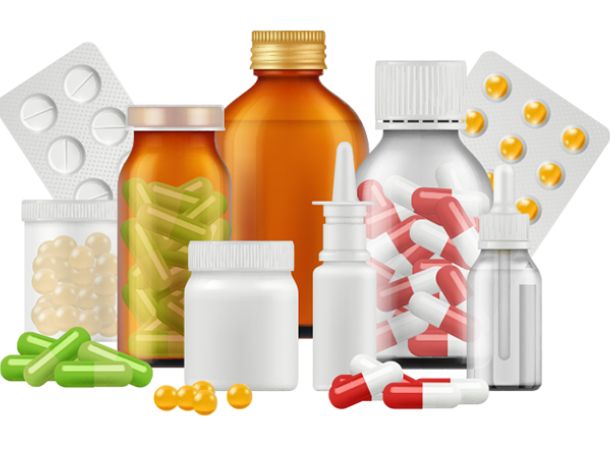Lifescience wholesale distributors play a crucial role in the global healthcare and biotechnology industries. These distributors supply a wide array of products, including laboratory supplies, scientific equipment, pharmaceuticals, and biotechnological innovations, to various entities such as hospitals, research institutions, pharmaceutical companies, and other healthcare providers. In this article, we will explore the role of Lifesciences wholesale distributors, their importance in the healthcare supply chain, the products they offer, and the factors that make them a vital part of the industry.
What Are Lifescience Wholesale Distributors?
Lifescience wholesale distributors are companies that source and supply products used in healthcare, medical research, pharmaceuticals, and biotechnology. These distributors typically work directly with manufacturers to acquire products in bulk and sell them to organizations, researchers, and healthcare providers at a competitive price. They act as intermediaries between manufacturers and end-users, facilitating the movement of goods and ensuring that products reach the necessary parties efficiently and cost-effectively.
The life sciences industry encompasses a broad range of fields, including pharmaceuticals, biotechnology, medical devices, diagnostics, and laboratory supplies. As such, wholesale distributors in this sector deal with a wide variety of products, each of which requires specific storage, handling, and transportation protocols to maintain quality and safety.
The Importance of Lifescience Wholesale Distributors
Lifescience wholesale distributors are a vital part of the healthcare ecosystem for several reasons:
- Supply Chain Efficiency: Distributors ensure that life sciences products are readily available to the healthcare professionals and researchers who rely on them. They reduce lead times, ensuring that products arrive in a timely manner, even in cases of urgency.
- Cost-Effectiveness: By purchasing products in bulk, wholesale distributors can offer significant discounts. This cost reduction benefits healthcare institutions, researchers, and other buyers who may otherwise be unable to afford high-quality life science products.
- Specialized Knowledge and Expertise: Lifescience wholesale distributors often employ experts who understand the technical aspects of the products they distribute. These specialists provide valuable advice and product support, helping customers select the right products for their specific needs.
- Product Access and Availability: Wholesale distributors often have exclusive relationships with manufacturers, which gives them access to products that may be difficult to obtain directly. By acting as middlemen, they make a wide range of life science products accessible to institutions and researchers.
- Regulatory Compliance: The healthcare and life sciences sectors are heavily regulated. Lifescience wholesale distributors ensure that the products they distribute meet stringent regulatory standards. This guarantees that products are safe and effective for use in medical, research, and commercial applications.
Types of Products Distributed by Lifescience Wholesale Distributors
Lifescience wholesale distributors handle a variety of products, each with specific functions and applications in the healthcare and research industries. Some of the major product categories include:
1. Laboratory Equipment and Supplies
Lifescience wholesale distributors supply a broad array of laboratory equipment and supplies, including:
- Microscopes: Essential for viewing and analyzing specimens at a cellular or molecular level.
- Reagents and Chemicals: Used in laboratory experiments for analysis, testing, and diagnostics.
- Test Tubes and Glassware: Crucial for handling and containing samples in research and clinical settings.
- Centrifuges and Incubators: Used to separate substances or maintain controlled environments for biological samples.
2. Pharmaceuticals
Pharmaceutical distributors supply medications to hospitals, clinics, and pharmacies. These include:
- Prescription Drugs: Lifescience distributors handle a wide variety of prescription medications, including those used for chronic conditions, infections, and acute care.
- Vaccines and Biologics: Vaccines, antibody therapies, and other biologics are vital for disease prevention and treatment.
- Over-the-Counter Medications: Many distributors supply OTC medications, such as pain relievers, antihistamines, and supplements.
3. Medical Devices and Equipment
Distributors also supply essential medical devices and equipment used in diagnosis, treatment, and patient care. These include:
- Diagnostic Tools: Devices such as blood pressure monitors, thermometers, and glucose meters are distributed to help diagnose and monitor various conditions.
- Surgical Instruments: Tools used in surgeries, such as scalpels, forceps, and scissors.
- Imaging Equipment: MRI machines, ultrasound equipment, and X-ray machines are critical in medical diagnosis.
4. Biotechnology Products
Lifescience wholesale distributors also play a significant role in the biotechnology field by distributing products such as:
- Genetic Testing Kits: Used for diagnostic purposes and research in genetics.
- Bioreactors: Equipment used for growing cells in a controlled environment for research or pharmaceutical production.
- Proteins, Enzymes, and Antibodies: These are essential for various laboratory applications, including research in cell biology, molecular biology, and immunology.
5. Personal Protective Equipment (PPE)
Given the growing importance of hygiene and infection control, PPE items such as gloves, masks, face shields, and gowns have become crucial products distributed by lifescience wholesalers, especially during global health crises like the COVID-19 pandemic.
Key Factors to Consider When Choosing a Lifescience Wholesale Distributor
When selecting a lifescience wholesale distributor, several factors need to be considered to ensure the highest quality products and services. Here are some key factors to take into account:
- Product Range and Quality: A reputable distributor should offer a wide range of high-quality products. Be sure that the distributor’s product portfolio aligns with your specific needs.
- Regulatory Compliance: Ensure that the distributor adheres to industry regulations, such as FDA standards, Good Manufacturing Practices (GMP), and ISO certifications. This is essential for ensuring the safety and efficacy of the products being supplied.
- Delivery and Lead Times: Timely delivery is critical in the life sciences field, especially when dealing with perishable items like biologics and medical reagents. Choose a distributor known for reliable and fast shipping.
- Customer Service and Support: A strong customer support team is essential. You want a distributor who can assist with troubleshooting issues, answering product-related questions, and offering technical advice.
- Pricing and Payment Terms: While cost is an important consideration, it should not come at the expense of quality. Compare pricing from different distributors and inquire about payment terms and discounts for bulk purchases.
- Technology and Ordering Systems: A user-friendly online ordering platform can significantly streamline your purchasing process. Check if the distributor offers convenient ordering methods, real-time inventory updates, and tracking systems.
The Future of Lifescience Wholesale Distribution
As the life sciences industry continues to evolve, so too does the role of wholesale distributors. Advances in technology, such as automation, artificial intelligence (AI), and blockchain, are shaping the future of distribution. These technologies can help improve supply chain transparency, reduce costs, and ensure product authenticity.
For example, blockchain technology has the potential to improve the traceability of pharmaceutical products, ensuring that they are not counterfeit and are stored and distributed according to regulatory standards. Similarly, AI can help predict demand, streamline inventory management, and optimize delivery routes, making the distribution process more efficient.
Additionally, as the demand for biotechnological and personalized medicines rises, wholesale distributors may need to adapt by offering more specialized services, such as cold chain logistics for temperature-sensitive products and on-demand supply for clinical trials.
Conclusion
Lifescience wholesale distributors play a vital role in ensuring that essential products reach healthcare providers, researchers, and institutions. Their ability to provide access to a diverse range of high-quality products, while ensuring regulatory compliance and timely delivery, makes them indispensable to the life sciences industry. With ongoing technological advancements and increasing demand for specialized products, the role of wholesale distributors will continue to evolve, further enhancing their importance in the healthcare and biotechnology supply chains.








